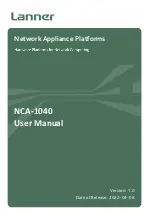
Applications and Exchange Tools
Feature Pack Deployment Guide
53
Table 4.2 ESEUtil.exe Procedures that Should Be Run from the Server that Contains the
Exchange Databases
Procedure
Description
Defragmentation
Eseutil /d
Makes used storage contiguous, eliminates unused storage, and compacts the
database. Eseutil.exe copies database records to a new database. If there is
insufficient space on the original server, the new database could be created on a
different server. The function reads all of the records in the database at least one
time and writes all records to a new database.
If the defragmentation process creates a new database on a different server —for
example, on a Windows Storage Server computer — run the defragmentation
procedure on the server that contains the new database.
For more information about defragmenting a database by using the ESEUtil.exe
utility, see Microsoft Knowledge Base article 192185, “XADM: How to Defragment
with the Eseutil Utility (Eseutil.exe)”
(
http://go.microsoft.com/fwlink/?LinkId=23124
).
Integrity
Eseutil /g
Confirms the integrity of the pages in the database, as well as the integrity of the
data on the pages themselves. Reads the database at least one time.
Checksum
Eseutil /k
Confirms the integrity of pages in the database by recalculating the checksum on
each database page. Reads the database one time.
For more information about checking the integrity of a database by using the
ESEUtil.exe utility, see Microsoft Knowledge Base article 825088: “How To: Use the
Eseutil Utility to Detect File Header Damage in Exchange 2003”
(
http://go.microsoft.com/fwlink/?LinkId=23125
).
Repair
Eseutil /p
Modifies parts of the database that are incorrect. The amount of repair work that is
necessary depends upon the amount of corruption. Reads the entire Exchange
database at least one time.
For more information about repairing a database by using the ESEUtil.exe utility, see
Microsoft Knowledge Base article
327156: “Error Message: The Database Files in
this Storage Are Inconsistent” (
http://go.microsoft.com/fwlink/?LinkId=23126
).
Procedures to Run from the Exchange Server
The procedure that is described in Table 4.3 should be run from the Exchange server.
Table 4.3 ESEUtil.exe Procedures that Should Be Run from the Exchange Server
Procedure
Description
Recovery
Eseutil /r
Reads all log files that have not been committed to the database, and updates the
database from the log records.
Run this procedure from the Exchange server.
Procedures to Run from either the Exchange Server or the Windows Storage Server
The procedures that are described in Table 4.4 can be run either from the Exchange server or
from the Windows Storage Server computer.
Summary of Contents for PowerVault 770N
Page 6: ...Contents Feature Pack Deployment Guide 6 ...
Page 10: ...Introduction Feature Pack Deployment Guide 10 ...
Page 36: ...Installing the Feature Pack Feature Pack Deployment Guide 36 ...
Page 56: ...Applications and Exchange Tools Feature Pack Deployment Guide 56 ...
Page 62: ...Feature Pack Deployment Guide 62 ...
Page 70: ...Detailed Report Log File Feature Pack Deployment Guide 70 ...















































